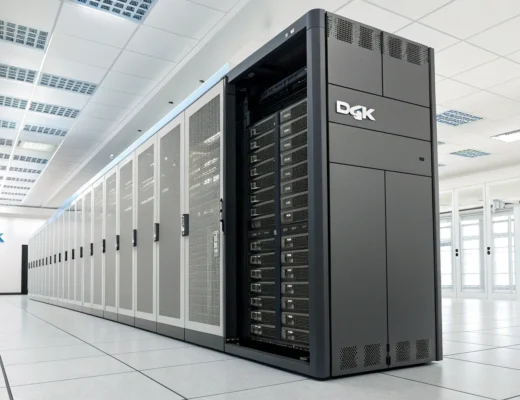Social entrepreneurs are increasingly altering the role of businesses globally by employing entrepreneurial principles, innovative ideas, and commercial expertise to generate a long-lasting and positive social or environmental impact. These progressive individuals utilize the same entrepreneurial spirit seen in conventional business endeavors to tackle intricate societal issues while enhancing the welfare of communities and the environment.
In order to create sustainable solutions,
social entrepreneurs collaborate with various stakeholders, ranging from local communities to government agencies, to ensure the development of inclusive, practical, and impactful strategies. By prioritizing social and environmental well-being over mere profit generation, these change makers reframe the notion of success and redefine the purpose of
businesses in today’s world.
The Evolution of Entrepreneurship
The rise of mission-driven enterprises marks a considerable shift in the understanding of entrepreneurship. Social entrepreneurs have realized that attending to
societal issues requires lasting approaches that incorporate purpose into business tactics. Central to this fresh perspective is the idea that obstacles can be converted into opportunities, encouraging innovation and empathy. By integrating social and environmental goals into their business strategies, these entrepreneurs create long-term sustainable solutions that address pressing societal challenges. In doing so, mission-driven enterprises promote positive change while also fostering a compassionate business landscape that values both profit and purpose.
Shifting Corporate Values
One example of this transformation is the outdoor clothing brand
Patagonia, established by Yvon Chouinard, which has embedded environmental responsibility into its core mission. Patagonia focuses on sustainable resources, reduces waste, and actively endorses environmental campaigns, signifying a new kind of corporate accountability. This
shift in corporate values not only benefits the environment but also enhances the brand’s reputation and customer loyalty. As more companies follow in Patagonia’s footsteps, it is evident that prioritizing sustainability, ethical practices, and social responsibility paves the
way for a healthier future for both businesses and the planet.
Social entrepreneurs have also recognized the strength in harmonizing profit and purpose, resulting in dedicated customer followings and deeply engaged employees. This congruence ignites passion, inventiveness, and commitment, driving mission-driven enterprises to extraordinary achievements. Moreover, this alignment of values fosters a unique ecosystem in which businesses can thrive while simultaneously addressing pressing social and environmental issues. By integrating a strong sense of purpose into their core operations, social enterprises attract like-minded individuals who collectively contribute to the creation of more sustainable and equitable communities.
Case Study: Warby Parker
Warby Parker, an eyeglasses company co-founded by four friends, exemplifies the prosperity produced by this alignment with its “buy one, give one” operational model, accomplishing significant social impact and business triumph. In this model, for every pair of glasses purchased, another pair is donated to someone in need, effectively addressing the issue of visual impairment in underprivileged communities worldwide. This innovative, socially conscious approach has not only garnered widespread customer support but also propelled the company to become a market leader in the eyewear industry.
Enduring Impact
Enduring impact is a further distinguishing feature of mission-driven entrepreneurship. Social entrepreneurs focus on long-term transformations, investing in initiatives that generate lasting positive outcomes. These outcomes often extend beyond immediate communities, fostering substantial change on regional, national, or even global levels. By emphasizing sustainable and innovative solutions, mission-driven entrepreneurs drive progress in various sectors, empowering individuals and societies to confront and overcome the diverse challenges they face.
Green School: A Model for Ecological Education
One such example is the Green School in Bali, founded by John and Cynthia Hardy, which incorporates sustainability, environmental teaching, and comprehensive learning into its teaching approach, nurturing upcoming generations of ecologically aware leaders. At the core of their curriculum, the Green School emphasizes hands-on, experiential learning techniques to engage and inspire students to develop a deeper understanding of environmental conservation and sustainable living practices. Additionally, the school’s campus, itself a model of sustainable design, features solar panels, recycled materials, natural ventilation, and organic gardens, further integrating “green” concepts into the daily lives of students.
Empowering African Entrepreneurs
The influential power of mission-driven enterprises and social entrepreneurship is evident in the efforts of Tony Elumelu, an innovative entrepreneur and philanthropist. Elumelu’s commitment to uplifting local economies and fostering innovation has made a significant impact on various communities across Africa. Through his foundation, he has managed to support and empower a multitude of
young entrepreneurs, enabling them to contribute positively to their societies and drive sustainable development.
Through The Tony Elumelu Foundation, he is enabling African entrepreneurs to stimulate sustainable economic expansion and societal advancement across the continent, emphasizing the
remarkable potential of social entrepreneurs to transform the world. In this way, Elumelu is not only fostering a new generation of leaders but also cultivating innovative solutions to longstanding challenges. His steadfast belief in the transformative power of social entrepreneurship acts as a
catalyst for change, demonstrating that targeted investments in individuals and communities can yield significant and enduring positive impacts.
Conclusion: Redefining Success
In conclusion, social entrepreneurs are disrupting traditional business models by intertwining purpose, profit, and long-term impact, signifying a promising future for mission-driven enterprises. They redefine success by prioritizing social and environmental goals, alongside financial growth, embodying the triple bottom line philosophy. As more individuals and investors appreciate the value of
social entrepreneurship, we can expect to see an evolutionary leap in businesses striving to create positive change in the world.
FAQs: The Evolution of Entrepreneurship
What is social entrepreneurship?
Social entrepreneurship refers to the practice of employing entrepreneurial principles, innovative ideas, and commercial expertise to create a long-lasting and positive social or environmental impact. Social entrepreneurs utilize the same entrepreneurial spirit as conventional businesses to address complex societal issues and enhance the well-being of communities and the environment.
How is social entrepreneurship different from traditional entrepreneurship?
Social entrepreneurship focuses on prioritizing social and environmental well-being over mere profit generation. By integrating social and environmental goals within their business strategies, social entrepreneurs create long-term sustainable solutions to pressing societal challenges, promoting positive change and fostering a compassionate business landscape that values both profit and purpose.
Can you provide an example of a company that embodies social entrepreneurship values?
One example is Patagonia, an outdoor clothing brand that has embedded environmental responsibility into its core mission. The company focuses on sustainable resources, reducing waste, and active support of environmental campaigns, thus exemplifying corporate accountability in a socially responsible and environmentally sound way.
What is the triple bottom line philosophy?
The triple bottom line philosophy refers to an approach in which businesses prioritize social, environmental, and financial goals equally. This philosophy is embraced by social entrepreneurs who redefine success by integrating social and environmental objectives alongside financial growth.
How does social entrepreneurship promote long-term impact?
Social entrepreneurs focus on long-term transformative initiatives that generate lasting positive outcomes, often extending beyond immediate communities to foster substantial change on regional, national, or even global levels. By emphasizing sustainable and innovative solutions, mission-driven entrepreneurs drive progress in various sectors and empower individuals and societies to confront and overcome diverse challenges.
What are some examples of successful social entrepreneurship initiatives?
Examples of successful social entrepreneurship initiatives include Warby Parker’s “buy one, give one” eyeglasses business model, the Green School in Bali that teaches sustainability and environmental education, and Tony Elumelu’s philanthropic efforts to empower African entrepreneurs and stimulate sustainable economic growth across the continent.
First Reported on: entrepreneur.com
Featured Image Credit: Photo by RDNE Stock project; Pexels; Thank you!







